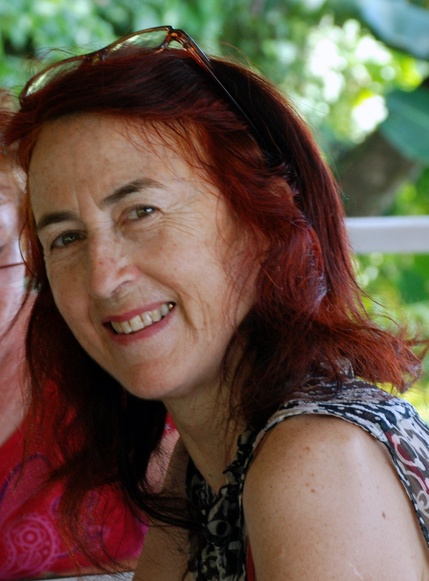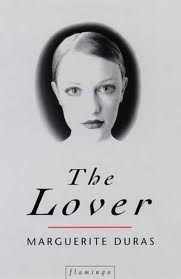I’ve always loved the memoir genre. Most of my writing, be it for theater, film, poetry, song or prose has an autobiographical base. Often my fictional characters serve as vehicles for discussing those aspects of my life that I feel the need to express. If the raw emotions contained in those memories go unwritten about, I feel like I am living a half-life.
I don’t know why it is that some people are driven to put their personal stories into the printed word while others are not. Even if we don’t commit them to paper, I’ve noticed that most of us must tell our deepest darkest secrets to at least one other person. Our days are filled with – not necessarily intentional – memoiric telling: relating to others what has happened in our day, or debriefing with friends, family or counsellors when major events occur in our lives.
When reading others’ memoirs, it is not so much ‘what happened’ as how the author felt about what was ‘happening to them that I find most interesting. One of my favourite memoirists, Diana Athill, thinks that memoir writing serves a useful purpose: that if you take something that has been troubling you all your life, write about it and publish it, chances are you will never have to visit it again.
I have a few of those troubling stories lining up to be written and I’m always telling my students it’s the things you think you can’t write about that will most likely constitute a best seller. It is important also to let the writing take you where it wants to go. You may start out with a plan to write a straightforward family history but find the work has other ideas in store.
The project I am currently working on began as a travel memoir set in Vietnam, following the footsteps of my literary hero Marguerite Duras. I took the trip in 2009, making a pact with myself that I would write from the minute I got on the plane until the moment I returned. I did just that and filled notebooks with copious details of my journey. When I sat down to write about it however, other themes demanded to be explored. Now rather than seeing this book-in-progress as just a literary travelogue, I am finding I want to weave in another thread: a musing on photos I have discovered of my mother through her girlhood to adulthood which will unfold in parallel with my writing about photos of Marguerite Duras taken during the same era. My photo-musing is related to the travel story, but is set in the present and I’d rather keep the strands separate to let the connections be made by the reader, than attempt to weave them into the travel narrative. I am still experimenting with the form the book will take and I am using Duras’ novella, The Lover, as my inspiration.
The Lover was initially conceived as a memoir, or rather – as a photo album with captions. But Duras noticed that in her album one important photo was missing; an image that was never taken but remained strong in her memory. She calls it the ‘absolute photograph’ and it becomes the central image of her autobiographical novel:
So I’m fifteen and a half. It’s on a ferry crossing the Mekong River. The image lasts all the way across. I’m fifteen and a half, there are no seasons in that part of the world, we have just one season, hot, monotonous, we’re in the long hot girdle of the earth, with no spring, no renewal.
Duras’s writing establishes this ‘opening shot’ as the fulcrum on which the story rests. As the narrative moves in and out of time with cinematic ease, it takes the reader into a fragmentary experience being inside memory with all the senses open.

I don’t yet know if I want to do something similar in my memoir, which I have entitled My Mother, Duras, but in my previous works I have often used Duras’s works as my starting point. Her writing takes me into a zone, a vast contemplative plane where at last it is possible to write in the way I always knew I should.
So far I’ve played around with a few structure versions and a while back used a blog to help me with my exploratory work: mymotherduras.blogspot.com.au Now I’m back to working in notebooks, making graphs and physically cutting and pasting fragments from the two strands. I still have way more to write although I do like the idea of ending up with a novella equivalent, perhaps I could call it a memoirette.
Jan Cornall is a writer, singer, performance poet and teacher based in Sydney, who leads international creative writing workshops and retreats in Australia and the Asia Pacific. Jan is also a sought after writing mentor. She has written fifteen produced plays, musicals, a feature film, a novel and three CDs of songs. Jan has taught creative writing since 1998 at writer’s centres, community colleges, universities (UTS, UWS) and writer’s festivals in Australia and Indonesia. Using a technique she has developed called Meditative Writing, Jan takes writers deep into their creative source. In August Jan is leading a 12 day writing journey in Vietnam following the footsteps of Marguerite Duras. Aug 16 – 30. Still some places left. Read more about this retreat and Jan’s other teaching here: http://www.writersjourney.com.au/

Hi, many thanks for this post. As a writer who has been struggling for years with a supposedly research-based project that keeps mutating and dragging me in, it was nice to hear about someone else’s dilemmas and decisions. I tried the link to your (Jan’s) blog but link didn’t seem to work.
Lee, really enjoying this site. Which reminds me that I haven’t yet read your book – not for lack of interest, just time and brainpower. I look forward to it. Warm wishes, Kate
Kate, thank you so much for your wonderful feedback and for alerting me about the link. I fixed the link now. I hope your own research-based project will find the right form of expression soon. It sounds like you have a lot of perseverance with it!
Aha, just realised why I haven’t read The Dangerous Bride yet. It hasn’t been published!
‘It is important also to let the writing take you where it wants to go.’ – so true. Often, the book we think we’re writing turns into something else entirely. I love the surprises along the way. And I love the idea of another writer’s life and work being a springboard for our own.
Thank you for this, Annabel. I share your love of surprise in how a book may unfold. This happens to me not only with fiction but also with my creative non-fiction work. I often write about my life then make surprising connections between events I didn’t think belonged to each other.
Thanks for such a well considered post on the process of memoir writing. I am writing a book about growing up as the child of a Vietnam veteran and I am constantly struggling to weave together the different stories and threads vying for my attention. I also find the question of why some people are compelled to explore and share their stories while others are not a fascinating one.
Ruth, I’m so glad you enjoyed Jan’s writing. Your memoir sounds really interesting and the fact you’re struggling with writing it tells me you’re taking risks with your work rather than following well-worn paths. As to your question about the reasons behind writing (or not) about one’s life, I also thought about this a lot. To try and answer it here is too hard of course, but overall, I think for some people writing serves the purpose of self-examination and for others – that of escape. Of course there are more nuanced reasons at play too. Thank you for your comment!
Why do some write their personal stories and others not?
Among the many reasons one may be the need in some to reflect on personal experience (through the writing process), as well as or in preference to sharing it verbally. Writing is a more socially detached experience than personal sharing and perhaps takes place at a different time in the cycle of those powerfully lived moments, events, relationships.
Interesting topic.
Jo, thank you for your thoughts on this topic that intrigues me too. I absolutely agree with your points. Some refer to writing as to a form of slow thinking. I think you’re right, being a less social activity writing does lend itself better to reflection.